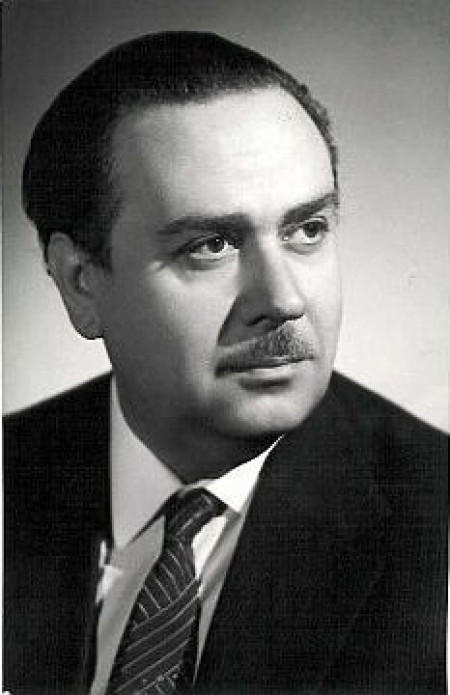
27 April 1919, Budapest – 22 May 1981, Budapest
Viola virtuoso, violin and voice professor, department head and vice-president at the Liszt Ferenc Academy of Music. From 1934 until 43, Lukács studied violin under the guidance of János Koncz and Imre Waldbauer, while he was also taking vocal classes with Margit Walter and Imre Molnár. He joined the faculty of the Liszt Ferenc Academy of Music in 1946 initially as a voice tutor, then in the following year, he was appointed the first professor of viola. In 1948, he won 2nd prize at the Geneva International Music Competition in viola. From 1972, he acted as vice-president, and in 1975, he was appointed Head of the Voice Department as well. Already as early as 1936, he was member of the Hungarian State Opera Orchestra, where he was also active as solo violist between 1947 and 1976.
Both as a soloist and as a chamber musician, he gave concerts all over Hungary and abroad. Among others, he acted as a celebrated guest artist at the music events of the Vienna Music Weeks, the Prague Spring and the Venice Biennale. As the writer Milán Füst recalls one of his concert experiences with Lukács: "It is nearly wizardry what he manages to achieve on a span of a bow length: most complex figures that seem to be impossible to accomplish without the greatest of efforts. But lo and behold! Even these whirl into the air with the lightness of breath. He plays the violin with the same enthusiasm, ease and fun as a child first rolls a hoop; Germans call it Spielfreudigkeit."
Between 1964 and 1978, he regularly delivered masterclasses at the Weimar International Music Competitions, was appointed board member at the Hungarian Association of Musicians and was often invited into juries of Hungarian and international music contests.
Lukács inspired the birth of new Hungarian viola compositions; Hungarian and foreign composers dedicated their works to him. The conductor Miklós Erdélyi, who compared his pedagogical enthusiasm to that of Milán Füst, remembered him as follows: „I recall his magnificent performances of Bartók, Walton, Gyula Dávid, Pál Kadosa, Stamitz, Christian Bach’s viola concertos. It wasn’t easy to accompany him. He was a Romantic spirit, his performance style was not free from Romantic extremes, but similarly to natural phenomena, these exaggerations were inherent part of his personality… he was well-aware of the tragic paradox of life and death, he had no illusions of existence, he knew all too well that ambition is vanity, vanity of vanities, and in the end, all will be scattered in indifferent infinity. Yet, while he was teaching, he was full of cheer, he was oozing love for life, faith in beauty and optimism."
He held music pedagogical lectures, wrote articles and also prepared and edited others’ viola works for publication. In 1960, Lukács issued an important pedagogical work for viola: Exercises in Change of Position for Viola, Advanced Level. His audible legacy remains with us on six solo albums. Lukács was the recipient of many awards including the Artist of Merit of the Republic of Hungary Award in 1952, the Kossuth Prize in 1965 and the Outstanding Artist Award of the Republic of Hungary in 1971.
Mária Csanda


